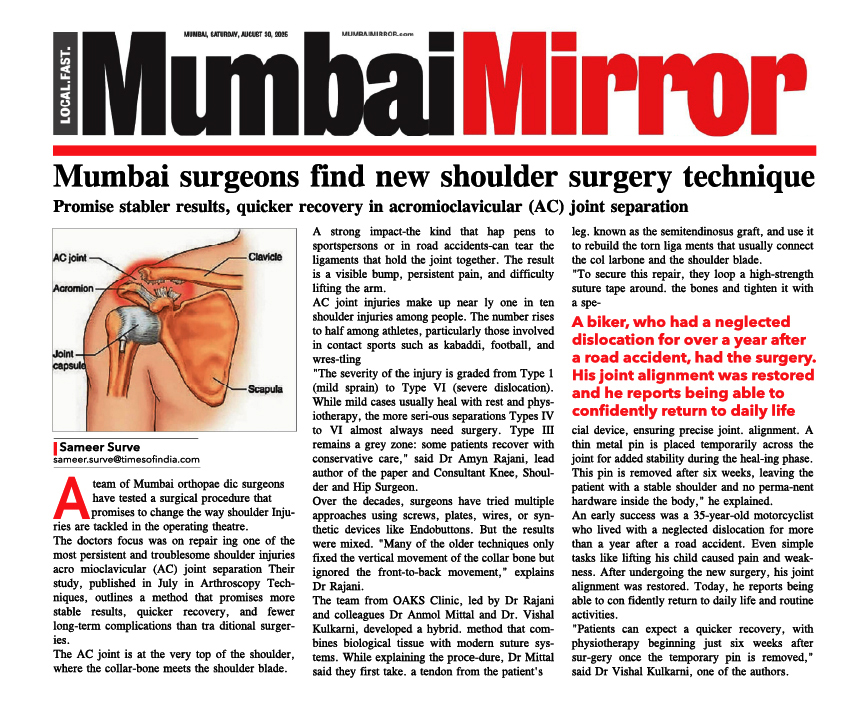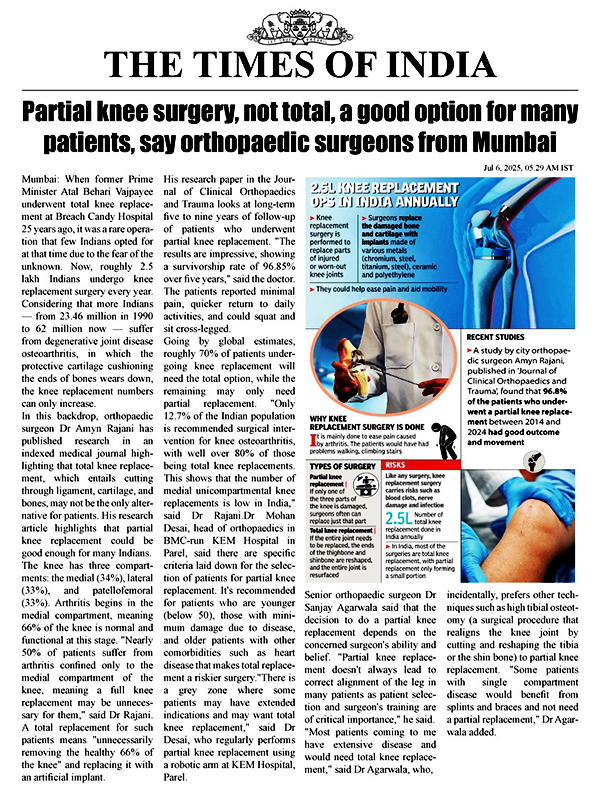Hip replacement surgery has become increasingly common in recent years, offering relief and improved mobility for individuals suffering from debilitating hip conditions. However, amidst the advancements in medical technology, several misconceptions and myths continue to circulate regarding this surgical procedure. In this comprehensive guide, we aim to dispel these myths, providing clarity and accurate information to individuals considering or researching hip replacement surgery.
Myth 1: Age is a Barrier to Surgery
- Age alone isn't a decisive factor for surgery eligibility; rather, overall health and lifestyle are crucial considerations.
- Advanced age doesn't necessarily correlate with increased surgical risks; individual health conditions play a more significant role.
- Modern medical advancements have made surgeries safer for older adults, provided they're in good health otherwise.
Myth 2: Hip Replacement is Only for the Elderly
- While hip replacements are common among older adults due to wear and tear, younger individuals might also require them due to injury, arthritis, or congenital conditions.
- The decision for surgery is based on the extent of damage and the impact on the individual's quality of life, not solely on age.
Myth 3: Surgery Means a Sedentary Life
- Post-surgery, rehabilitation and physical therapy enable patients to regain mobility and resume an active lifestyle.
- Advances in surgical techniques and implant designs facilitate quicker recovery, allowing patients to return to activities they enjoy.
Myth 4: Short Lifespan of Artificial Hip
- Modern hip implants are durable and can last for decades with proper care and maintenance.
- Improved materials and surgical techniques have significantly increased the longevity of artificial hips.
Myth 5: Recovery Takes Extensive Time
- While rehabilitation is necessary, technological advancements have expedited recovery, with many patients resuming normal activities within weeks or a few months post-surgery.
Myth 6: All Hip Implants Are the Same
- There's a wide array of hip implant designs and materials available, each tailored to specific patient needs and preferences.
- Surgeons consider various factors to select the most suitable implant for an individual, leading to better outcomes.
Myth 7: Alternative Treatments Are Better
- Alternative treatments like medications, physical therapy, or injections may help manage hip issues initially but may not provide long-term relief.
- In cases where conservative treatments fail to alleviate pain or improve mobility, surgery might be the most effective solution.
Myth 8: Surgery is Only for Extreme Pain
- Surgery is considered when pain and limited mobility significantly affect a person's daily life, but it doesn't always require excruciating pain to justify the procedure.
- Quality of life improvement is a crucial factor in the decision-making process for surgery.
Myth 9: Complications Are Inevitable
- While all surgeries carry some level of risk, advancements in technology and surgical techniques have significantly reduced the occurrence of complications.
- Most complications are rare, and the majority of patients experience successful outcomes.
Myth 10: Not Suitable for Active Lifestyles
- Hip replacements are often recommended for individuals with active lifestyles whose hip conditions impede their ability to engage in physical activities.
- After successful surgery and rehabilitation, many patients return to their active pursuits.
Empower Your Hips, Empower Your Life: Book Your Appointment with Dr. Amyn Rajani!
Dr. Amyn Rajani, a renowned hip replacement surgeon in Mumbai, is dedicated to debunking common myths surrounding hip replacement surgery. With a wealth of experience and expertise, Dr. Rajani aims to educate patients about the procedure and alleviate any misconceptions. One prevalent myth is the belief that hip replacement is only for the elderly, when in fact, individuals of various ages can benefit from the surgery to regain mobility and improve their quality of life. Another misconception is the notion that hip replacement results in a loss of natural movement. Dr. Rajani emphasizes that advancements in surgical techniques and prosthetic materials allow for a more natural range of motion post-surgery. By dispelling these myths, Dr. Amyn Rajani empowers patients to make informed decisions about their hip health and encourages them to consider hip replacement as a viable and transformative solution.
To schedule an appointment, call on Clinic Number: 91-88989 75355 / 91-22-23619137





